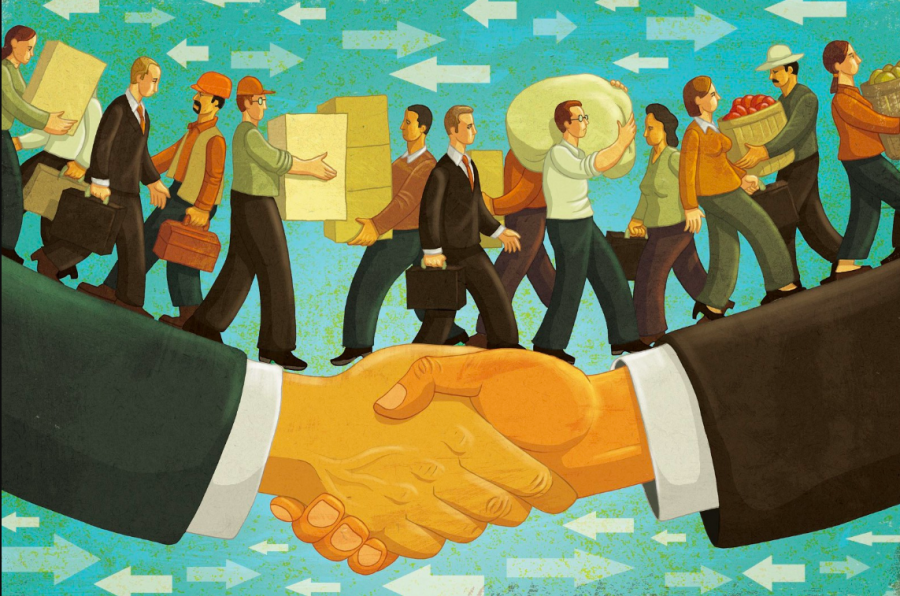Free Trade vs. Trade Wars
June 3, 2019
The question of free trade has to be asked in a time where we have heard so much about trade wars. As of late, a new tariff has been placed on Mexico and for a while now tariffs have been placed on China. Both rank amongst some of our top trading partners so what is the idea behind it.
Well first let’s talk about what a tariff is, a tax. A tax upon certain imports or exports to either generate funds for a country or put pressure on certain countries or parts of the economy. For example, if we were to put a tariff on all food imports, foreign sellers would have to raise their prices to account for the tax and so their product will be more expensive, while domestic food can continue selling at the same price with a now weakened competition. This, of course, becomes a problem for the countries where these foreign businesses are located since they are doing more poorly and generating less in tax income.
The answer as history has shown us is to raise tariffs in response. It begins a war of raising tariffs to outdo the other, a “trade war”. This is what happened when we raised tariffs on Chinese imports, they raised tariffs making everybody worse off in the long run. However, why would either side engage in such a practice in the first place if both sides will take damage?
That is because you can win a trade war and an economic boon for your own country. Historically we look to our trade with Japan during the 1980s. We saw Japanese companies buying up American companies at an unprecedented rate, what we deemed unfair trade practices and a trade deficit. So what was done, first Japan placed a quota on the car exports to prevent a trade war, second the Plaza accord devalued the US dollar making trade easier, third 100% tariffs were imposed on Japan essentially barring them from the US market and destroying the value of the yen. It skyrocketed making the price of goods in Japan much higher. So why isn’t this something we do with lots of countries?
Firstly it would destroy our reputation as a trading partner if we bullied our way into economic prosperity which would then carry us out of that prosperity. That and there are some economies in the world similar to the size of our own that have the staying power to enter a drawn-out trade war with us. China is the primary example of such a country and also one we have entered into a trade war with.
This has the potential to help plenty of businesses who compete with China making them stronger as a whole but those who rely on Chinese companies will be weakened and hurt.
In contrast, free trade is where tariffs are removed by both sides to let businesses buy and sell freely. On that relatively fair playing field, a better connected economic system can grow and take root.
